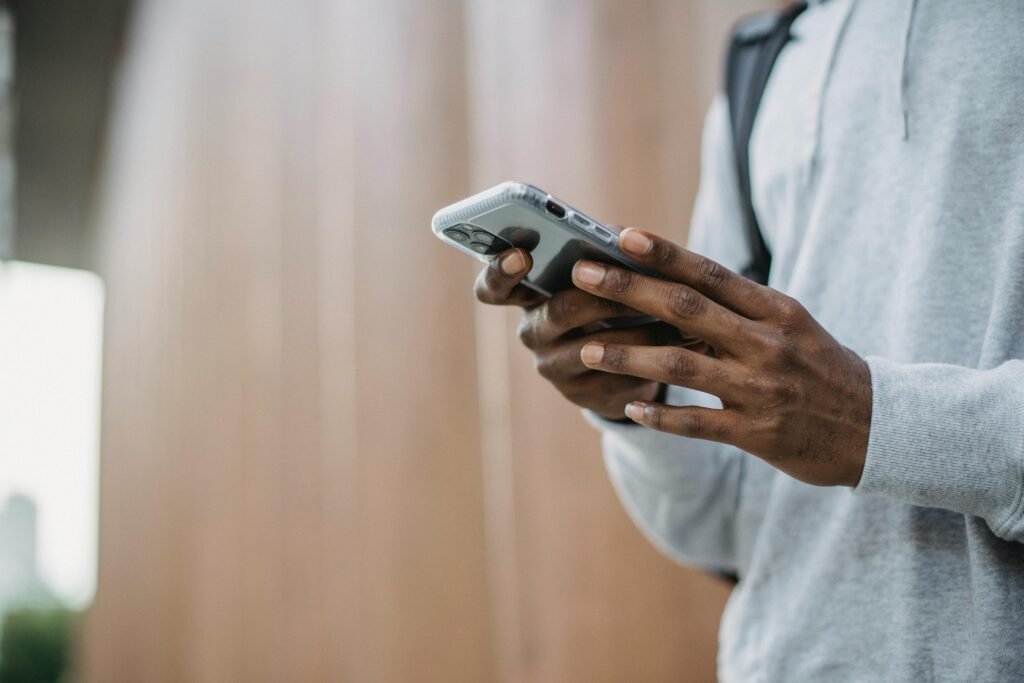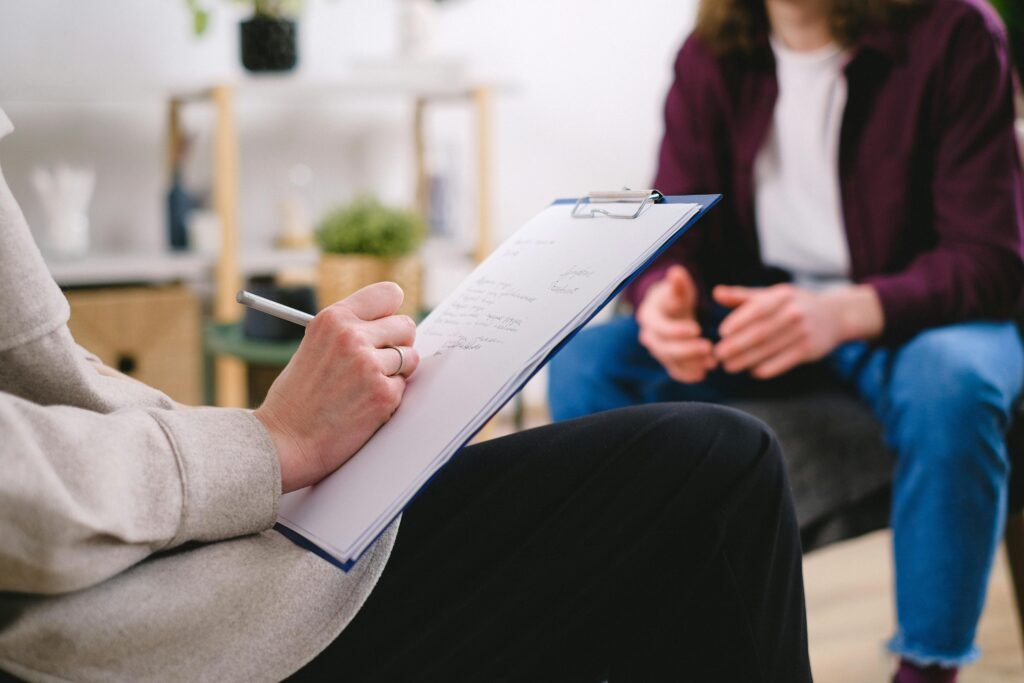The impact of social media on mental health is quickly becoming one of the most talked about phenomena in the current digital age. As social media connects billions of people across the globe, anxiety, depression, and mental wellness have emerged as areas of concern. In this blog, we will look at both the good and bad effects of social media, while being informed by research and experts in the field, as well as actionable suggestions for more positive engagement in online spaces.
Introduction
Social media has become a necessary part of contemporary society. People are checking in with friends, family, and the globe, making social media an everyday fixture to the point that a daily social media check can exceed hours spent every day for billions of people. Knowing its undeniable importance, it seems as though social media has shifted from a fun form of entertainment or connection to an adjustment to our everyday realities. Researchers are taking note of this shift, and some researchers have taken note of the relationships between social media and mental health.
Social media can provide opportunities for community connection, support, and social awareness about mental health topics. Social media can also be associated with anxiety, depression, low self-esteem, and from time to time sleeping problems. Understanding the relationship between social media and mental health remains important because the usage of social media continues to rise among young people and adults.
This paper will discuss both the pros and cons of social media as they relate to mental health. Both sides of the debates include research, as well as strategies to implement balance.

2.What Research Shows About Social Media and Mental Health
For the last ten years, research has focused on social media’s effects on mental health and there are lots of findings. For the most part, researchers generally agree that none of the findings stand alone, meaning excessive or unrestricted use of social media can have positive or negative effects.
A few studies cited research’s concern for the risks:
According to a report published by the American Psychological Association, teens spending more than three or more hours a day on social media are more likely to experience anxiety and depression.
Research published in The Journal of Social and Clinical Psychology suggests that reducing social media use to thirty minutes a day from the hourly or daily average does indeed improve well-being and reduce loneliness.
Research on sleep tells us that scrolling too late too often, initiates sleep cycles that are not healthy, and is connected to mental health.
As there are variety risks cited by researchers, there are a few benefits as well. Some researchers found social media does provide individuals with emotional support networks, particularly for people adapting to isolation or chronic illness or mental conditions. Online communities tend to provide a sense of acceptance and validation that one may not find offline.
Therefore in summary, there is enough research to understand social media affects mental health but the effects are neither entirely harmful or entirely beneficial. The outcome depends on state as the user.

3 .Positive Effects of Social Media on Mental Health
While there are often concerns regarding the negative impact of social media, research also indicates that there are various positive effects of social media on mental health when these platforms are utilized purposefully, and in moderation. Social media can support well-being by providing connection, support, and access to important information.
- Staying Connected with Loved Ones
Perhaps the best thing about social media is the ability to remain in touch with friends and family around the world. Reducing feelings of isolation and keeping hold of meaningful relationships is important.
- Building Supportive Communities
Social media offers individuals safe spaces where they can share experiences about anxiety, depression, or other challenges. There are groups devoted to providing encouragement and reassurance, which are important for emotional health.
- Raising Awareness about Mental Health
Campaigns and movements on mainstream social media platforms (e.g., Instagram, TikTok, and Twitter (X)) have reduced stigma around mental health through raising awareness of lived experience. Many users feel comforted seeing others speak openly about similar struggles.
- Access to Education and Resources
Social media provides individuals access to expert knowledge as well as informal education, for instance through mental health podcasts or live sessions with a professional. Individuals are exposed to new terms or coping strategies, mindfulness techniques, or a list of available supports.
4. Adverse Effects of Social Media on Mental Health
Social media can be beneficial, but research reveals it can be problematic in regards to overuse unhealthy use. Many of the negative ramifications of social media on mental health can be related to stress, comparison, and connectivity.
- Anxiety and Depression
Spending too much time watching highlight reels of other people’s lives can lead to comparisons, feelings of inadequacy and, according to research, higher rates of anxiety and depression, especially in adolescents and young adults.
- Cyberbullying Protect Yourself
Unlike face-to-face encounters, online platforms can make bullying more accessible. Negative comments, trolling or harassment and hate, can lead to emotional turmoil and the possibility of permanent psychological distress.
- Social Media Addiction
An avalanche of notifications and even “likes” creates a cycle of activity that can lead to addictive behavior. Users have been observed to become compulsive about checking their phones with some users interrupting schedules, focus and productivity, and personal well-being.
- Fear of Missing Out (FOMO)
Seeing friends attend events, travel or post achievements can leave users feeling disconnected from a social circle. This disconnect has been attributed to triggering stress levels and reducing life satisfaction.
- Disrupted Sleep
Late-night scrolling or blue light exposure prior to sleep can interfe

5. Who Is Most Impacted?
People experience social media differently. Some people are more prone to the potentially negative impacts of social media on mental health because of age, lifestyle, and/or existing conditions.
- Adolescents and Young Adults
Adolescents and young adults use the internet more than any other group while also being relatively influenced by peer validation through likes and shares. The pressure to fit in and often comparison cause anxiety, low self-esteem, or sleep disturbance in many cases.
- People With Vulnerabilities and/or Mental Health Conditions
People who have little to no coping mechanisms or poor coping skills are prone to being negatively impacted by social media. If they struggle with anxiety or depression, increased use of social media can exacerbate feelings of isolation if present or increase the likelihood of developing symptoms.
- People Who Use Social Media Heavily
Using social media for several hours every day creates the likelihood of developing a social media addiction along with lack of focus and disrupted daily routine/life. The more hours spent in social media, the more potential for mental health impacts, both positive and negative.
- Adolescents Experiencing Cyberbullying
Younger ages are potentially greater victims of cyberbullying. While they are at an age of emotional development, the harmful consequences of cyberbullying can last a lifetime.

6. How to Use Social Media in a Healthy Way
While research identifies both benefits and drawbacks of using social media on mental health, the good news is that if you apply healthier habits, you may minimize the risks. By being more intentional while on social media, you can reap the benefits of connecting to others or obtaining information, while still taking care of yourself.
- Set a time limit
Make use of the screen time records or other apps to record how often you are using social media. Research indicates that if you can avoid social media use for two or more hours per day, it might help promote your mental health.
- Curate your feed
Unfollow people that create feelings of comparison, negativity, or stress. Follow pages that you find motivating, educational, or supportive.
- Take digital detox breaks
Be sure to periodically step away from screens in order to recharge. Regular doses can help – just taking one day of the week away from screens can lessen stress levels and can help you so that you can focus better.
- Don’t forget in-person socializing
Social media can be an easy replacement for in-person socializing with friends and family, but the reality is that in-person socialization is important for promoting stability and emotional balance.
- Be intentionally engaged instead of scrolling
If you are genuinely interacting with other people (such as commenting, sharing, or joining in discussion), it can feel more fulfilling than mindless scrolling, where you may often have feelings of disconnection.
To sum up, using social media in a mindful way is the best way to lessen the negative effects of a lot of social media use on your mental health.

7. Expert Perspectives & Professional Opinions from Mental Health Specialists
To comprehend the pros and cons of social media on mental health requires an examination of what psychologists and mental health professionals say. Mental health professionals are advising that social is neither good nor bad, but rather, you need to consider how people are using social.
What psychologists are saying
The American Psychological Association states that high social media use is associated with greater levels of stress, anxiety, and depression among young people, particularly teens and young adults.
Psychologists also mention that positive online interaction like supportive communities can enhance self-esteem and reduce loneliness.
What mental health organizations have to say
The World Health Organization (WHO) mentions sleep disruption from social media, especially late-night scroll can negatively impact mental well-being.
Nonprofit groups like Mental Health America (MHA) emphasize that promoting digital wellness is key by encouraging individuals to set boundaries around their online activities.
What the experts are saying
Experts generally agree to:
Limit overall screen time on a daily basis,
Regularly take digital breaks,
Seek offline support from friends, family, or professionals when necessary,
Use social media purposely for learning and connection not endless timeline scrolling.
With insight from the professionals, people can navigate the effects of social media on mental health better.
FAQs About the Impact of Social Media on Mental Health
Q1: Can social media lead to depression?
Yes. Studies suggest that too much use of social media can increase overall depression risk, particularly for teens and young adults. The tendency to compare yourself to so many others online lowers self-esteem and leads to inadequate feelings.
Q2: Is quitting social media good for mental health?
It depends on the person. Taking a break or quitting entirely may allow some individuals to lower anxiety, focus better, and regain some balance. For others, simply being more mindful about use, instead of quitting entirely, could be a much better long-term solution.
Q3: What is healthy screen time?
In general, experts recommend limiting recreational screen time to approximately 1–2 hours per day. Beyond 2 hours, the likelihood of experiencing negative side effects from social media on mental health begin to rise (e.g., poor sleep, anxiety, and stress).
Q4: Is there any positive effects of social media on mental health?
Yes. For some, social media can provide a sense of connectivity, accessibility to support groups, and mental health awareness. As long as you are using it intentionally and do not fall into unhealthy patterns, social media can be useful.
Q5: Who is most impacted by social media effects on mental health?
Teens, young adults , and humans that already have a mental illness or disorder. However
Conclusion
Social media can be a powerful force of change that can reach levels to be used as a tool to connect, for learning opportunities, and share experiences with people close to us and people all over the world. As we have discovered, the impact of social media on mental health can be positive and negative: while social media offers connection, awareness, and support, it can impact our anxiety, depression and unhealthy habits, if used without boundaries.
The moral of the story is balance. It is possible to manage our mental health while enjoying social media, and it requires boundaries, making sure your feed is positive, and focusing on friends and family, in real-life, in that order.
Ultimately, your mental health is more important than your likes, followers, and notifications. Assessing and taking control of how you use social media is one of the most effective things to protect your mental health in today’s digital age.



